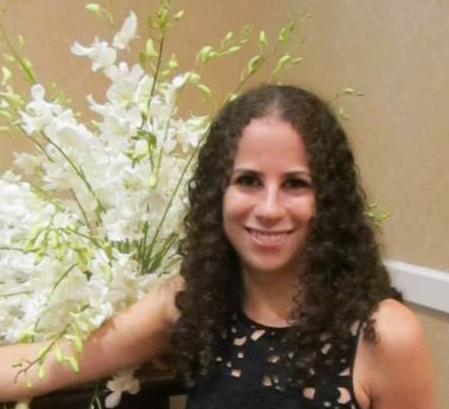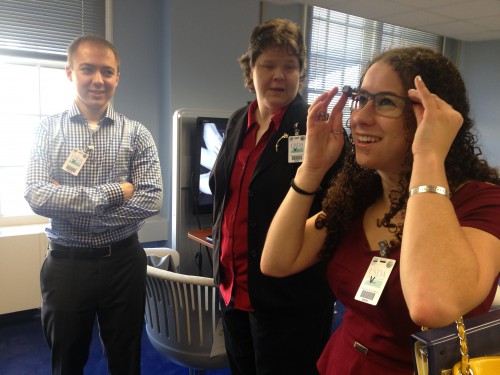We kicked off National Disability Employment Awareness Month (NDEAM) a few days ago with our post, and received some amazing responses from people sharing personal stories about their disability identity. Charged by their honesty and passion, Accessibility Partners wanted to open up and impart a story from one of our employees with a disability. Our workforce is over 85% compromised by people with disabilities, but that isn’t a sweeping proclamation. Each of those members of our staff that make up that 85% have their own struggles and triumphs as an individual with a disability. Today, we’re inviting of our own to stand in the spotlight.
Sharon Rosenblatt: Business Development and Document Remediation Specialist
Accessibility Partners (AP): What does October, this month of disability employment awareness, make you think of?
Sharon Rosenblatt (SR): After celebrating the 25th Anniversary of the Americans with Disabilities Act, I felt a cacophony of emotions. On one hand, I was very charged by all of the progress in a quarter of a century, and inspired by the promises of the future as the legislation continues to unfold. Yet, I was sentimental and nostalgic. If it weren’t for disability laws, as well as months like October to celebrate disability employment awareness, then these events would be taken for granted.
AP: Sounds like you have mixed feelings. What is some of your advice to employers who are looking to do more for employment of people with disabilities?
SR: I’m grateful for National Disability Employment Awareness Month because this is an issue that needs to be addressed. There is so much more that can be done to increase hiring of people with disabilities, including changing stigmas, removing barriers, and of course, increasing accommodations. Telework policies and accessible technology, which cost very little upfront and over time, can be a huge benefit to people with disabilities.
AP: Is this a month of inspiration? What are your feelings?
SR: I’m not one for fanfare, and indeed, a person with a disability with a job isn’t a monumental occurrence. However, the fact that there was a time when people were not employed just because of a stigma around disability blows me away. If I had been born just a few decades earlier, what would have happened to someone like me?
Indeed, one of my, and so many others’, grievances with disability awareness is what has been dubbed the ‘inspiration’ factor. I don’t think it is particularly inspiring that I go to work with a disability. My job performance should not be assumed to be better than someone else’s simply because I showed and did my job. Still, I wouldn’t be able to do my job if it weren’t for accommodations and flexible attitudes.
AP: How have you turned NDEAM into your own personal workplace story?
SR: Celebrations like NDEAM serve two purposes: to help employees with disabilities look back and to think of all the things we want in the future. It’s a wonderful month of reflection. The most important thing to do is gather what worked and what doesn’t. Accessibility Partners has found that the best course of action is having an honest discussion between employer and employee. There needs to be a two-way street of dialogue. I’m open with my bosses and my colleagues about my abilities, and what I have difficulty with. They in turn provide suggestions, accommodations, and most helpful, constructive criticism.
As one person in one small company, I know my experience is not indicative of the wide array of people with disabilities in today’s workforces. All I can do is push employers to hire more people with disabilities. It’s not as expensive or laborious as you might think. Learn more to reduce any stigmas, but also don’t just assume this is a charity or a pity push. Treat people with disabilities honestly and fairly, and you might just have your best employee hire ever. Then again, I’m biased.


